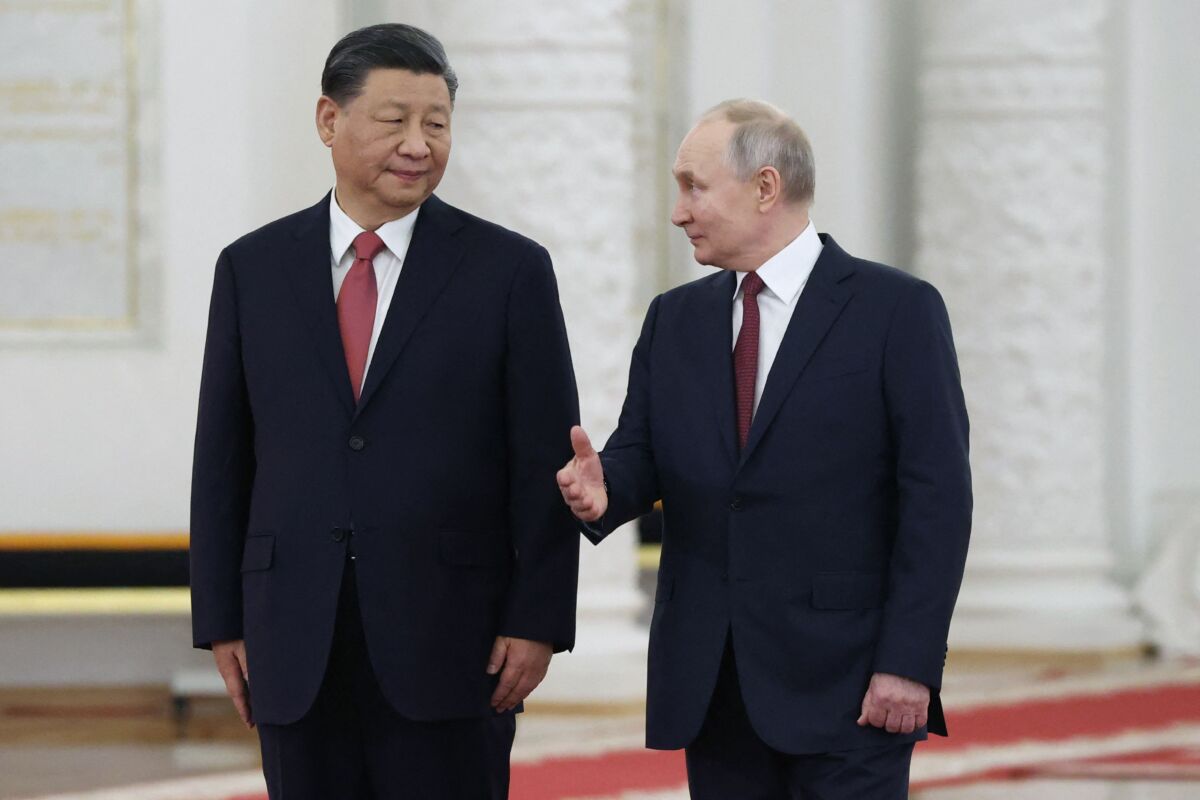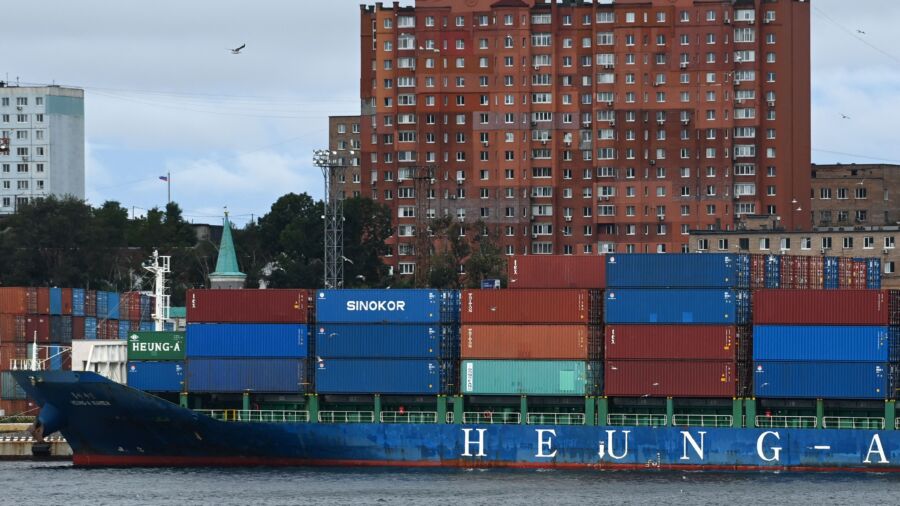Russia has recently opened its far eastern port of Vladivostok, which it has occupied since 1860, to China for shipping in what observers say is a strategic exchange between the two nations as their actions in Ukraine, and around Taiwan and the South China Sea continue to worsen international relations.
On May 4, the General Administration of Customs of the Chinese communist regime issued a notice, adding the Russian port of Vladivostok as a transit port for cross-border transportation of domestic Chinese goods. The policy will come into effect on June 1. Goods passing through Vladivostok will be classified as “domestic trade” and not be subject to import and export duties.
According to mainland official media, transport costs with the new route will be greatly reduced, as goods from China’s Jilin and Heilongjiang provinces would have to be trucked to Dalian Port in Liaoning Province—a distance of more than 1,000 kilometers (621 miles)—before they could be transited by sea. With entry to the port in Vladivostok, trucks will only have to travel about 200 kilometers (124 miles) from Heilongjiang’s Suifenhe city and Jilin’s Hunchun city.
Vladivostok: ‘Conquer the East’
Vladivostok, known by Chinese as Haishenwai, was China’s territory in official Chinese maps in the 13th century, when the port was first named Yongmingcheng. Later, the city was named Haishenwai, which is used in China to this day alongside “Vladivostok,” the Russian imperial name, which literally means “conquer the East” or “rule the East.”
The city, as well as the land surrounding it, is the homeland of China’s ruling Manchurian ethnicity of the Qing Dynasty. However, Haishenwai, along with more than one million square kilometers of territory in northeast China, was annexed by the Tsarist Russian Empire in 1860 after China was defeated by the British and the French during the Second Opium War.
For the following 163 years, Heilongjiang and Jilin had no port access.
The successive government in China, which was the Republic of China (ROC, 1911-present), never recognized the legality and validity of the treaty outlining Russia’s occupation of the territory.
After World War II, as one of the allied countries and the victorious side, the ROC government demanded the return of the sovereignty of Dalian, Vladivostok, Sakhalin, and other areas that were still being occupied by the communist Russia (the Soviet Union). However, in 1949, the ROC was defeated by the communists in China’s civil war, and withdrew to the island of Taiwan. The communists established the People’s Republic of China (PRC) in the mainland.
In 2001, the ruling Chinese Communist Party’s (CCP) then-leader Jiang Zemin signed a treaty with Russian President Vladamir Putin titled “Sino-Russian Treaty of Good-Neighborliness, Friendship and Cooperation.”
In the treaty, Jiang officially acknowledged the Chinese territories annexed by Russia since the imperial era to be Russia’s, permanently giving at least 1.5 million square kilometers of territory that belonged to China to Russia, including Wulianghai, Sakhalin Island, and Vladivostok (Haishenwai)—several dozen times the area of Taiwan.
Overseas pro-CCP Chinese-language media have begun to celebrate the recent announcement, saying that Russia’s opening up of Vladivostok to China is the dividend brought to the CCP by the Russo-Ukrainian war.
Professor Song Guocheng of the National Chengchi University in Taiwan told The Epoch Times on May 16 that there’s nothing worth celebrating about China being able to use the port, “It originally belonged to you, and now they just let you use it.”
Strategic Exchange Amid Tensions
Current affairs commentator Yang Ning wrote in his article for The Epoch Times: “Today, Haishenwai has become Jilin’s sea estuary in this way, which shows that since the outbreak of the Russo-Ukrainian War in 2022, under the strong sanctions of the West, Russia’s strength has been greatly damaged, as it has encountered setbacks in the war and its economic development is slow. Russia had to further strengthen its political, economic, and even military cooperation with the CCP, and even made some concessions to open up its territory, such as making Vladivostok a port for the CCP, so that it can ease the pressure from the international community.”
Yang added that, for the CCP, Russia’s opening of the port of Haishenwai is not only good for China’s economy, but has significance for CCP’s military abilities.
“Because once the CCP invades Taiwan, the West will definitely impose sanctions on the CCP. It is possible that the U.S. military will cut off the supply to the CCP on the routes such as through Malacca Strait and the Suez Canal. Then, the CCP’s ships can use Vladivostok to take the Arctic route,” he said.

After Russia invaded Ukraine in 2022, Russia has been sanctioned by many in the international community, while the CCP’s aggression toward Taiwan and in the South China Sea has also led to escalated tensions. The trade volume between China and Russia has increased significantly since then.
In March this year, CCP leader Xi Jinping visited Russia and signed a joint statement with Putin, which also mentioned development and regional cooperation in the “Northeast-Far East.”
Yuan Hongbing, a law scholar based in Australia, told The Epoch Times on May 16 that Russia’s opening of Vladivostok to China and the strengthening of Sino-Russian trade show that the CCP has always supported Russia behind the scenes. The international community should not imagine that the CCP will stop supporting Russia.
“The relationship between CCP and Russia is indeed an alliance between criminals which has no upper limit. The main supporter behind Russia’s invasion of Ukraine is the CCP,” Yuan said.
In an earlier interview with The Epoch Times, Yuan pointed out that the country that annexed and occupied the most Chinese territories in history has been Russia.
“Now, the CCP has formed an alliance with the aggressive country that has caused the most harm to China in history, which shows that the CCP can completely sell out China’s national interests for the benefit of its own regime.”
Ning Haizhong and Luo Ya contributed to this report.
From The Epoch Times

